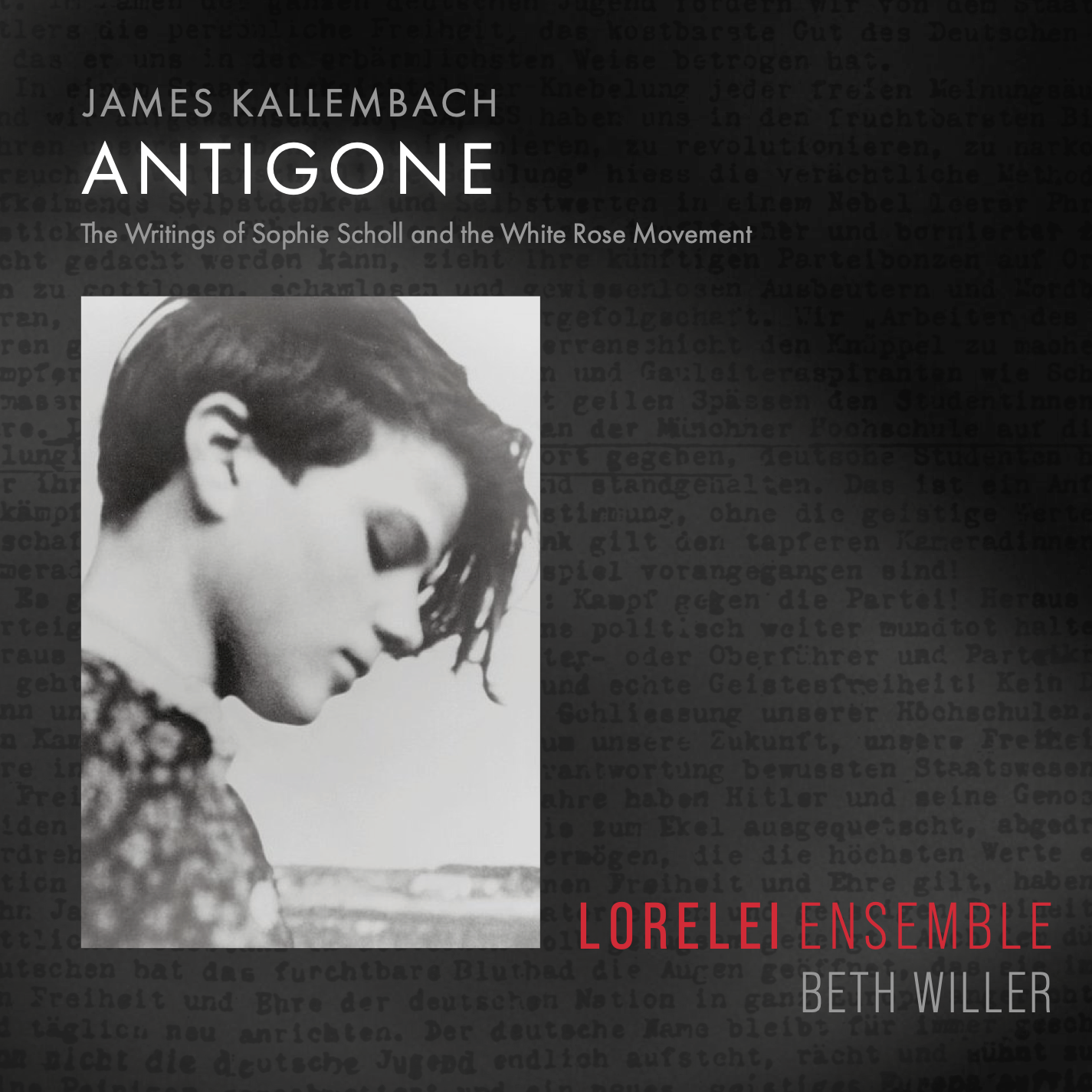James Kallembach’s Antigone: The Writings of Sophie Scholl and the White Rose Movement
Antigone
The Writings of Sophie Scholl and the White Rose Movement
Named Critic's Choice by Opera News
A note from the composer:
Sophie Scholl and her brother Hans were both active in the White Rose resistance during WWII: a nonviolent resistance group of several students and a professor from the University of Munich that wrote and distributed pamphlets denouncing the Nazi government. The White Rose began its activities in 1942. Sophie and Hans Scholl were sentenced to death and executed by guillotine in 1943. Their courageous resolve and persistence in their anti-Nazi views during trial and execution are well documented.
When I began working on this piece, I chose the writings of Sophie Scholl as a starting point in consultation with Beth Willer, the Artistic Director of Lorelei Ensemble. I then chose Sophocles’ Antigone as a dramatic framework to give structure to the piece. In crafting the libretto, Scholl’s writing seemed to meld directly into the words of Antigone, while the anti-Nazi pamphlets distributed by the White Rose movement served as ideal Greek choruses, delivering the Antigone narrative in short, suggestive vignettes.
For me, this ancient play serves to honor and extol the words of Sophie Scholl and the White Rose movement in their timeless, transcendent qualities. The clash between what we hold to be undeniably just and the decrees of those in power was important two thousand years ago in the public spectacle of Greek drama, it was important during WWII, it is important now and it always will be. —James Kallembach, 2022
“Antigone speaks to the boldness of Lorelei’s programming and its championing of contemporary material and composers. ... that it also presents another example of the group’s superb vocal gifts makes this provocative release all the more appealing.”
“Something elegant and different emerges after each hearing of this disc.”
Featured on the Album
Lorelei Ensemble
Beth Willer, artistic director and conductor
Sarah Brailey, soprano
Rebecca Myers, soprano
Jessica Beebe, soprano
Arwen Myers, soprano
Christina English, mezzo-soprano
Sophie Michaux, mezzo-soprano
Stephanie Kacoyanis, alto
Emily Marvosh, alto
Cello quartet
Caleb van der Swaagh
Lisa Caravan
Michael Unterman
Jonathan Dexter

